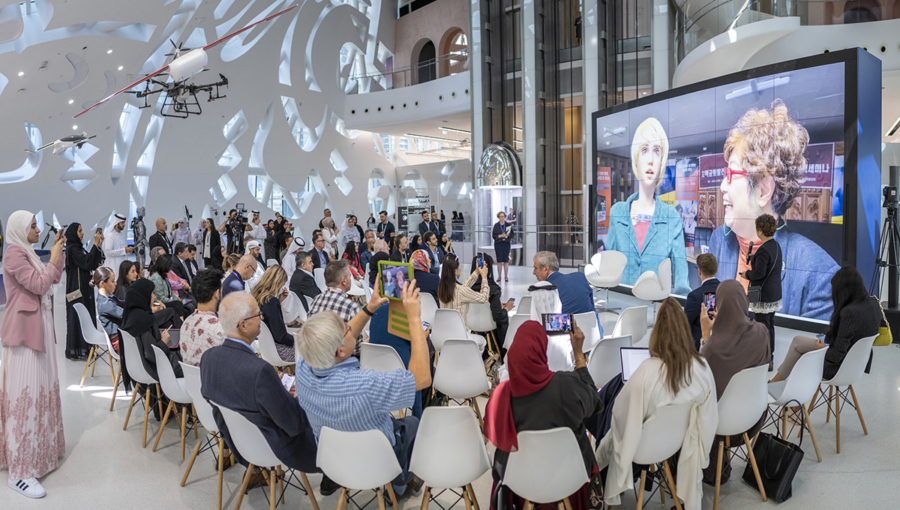In a session at the forum titled ‘Can We Befriend AI?’, Prof. Youngsook Park, Chair, UN Future Forum, said: “In the future, we will have AI judges to give verdicts via a chat application. People could attend internet courts. Robots can help people to learn, including coding, science, technology, engineering and mathematics, etc.”
Defining wealth
Dubai Future Forum also hosted another panel titled ‘How Do We Define Wealth in the Future?’ involving Dr Susann Roth, Chief of Knowledge Management, Asian Development Bank; Duncan Cass-Beggs, Counsellor for Strategic Foresight, OECD; Joseph Raczynski, Technologist and Futurist, Thomson Reuters; and moderated by Vilas Dhar, President of the Patrick J. McGovern Foundation.
The panelists agreed that wealth perception would dramatically change in the future, becoming more holistic by covering education, work-life balance, health, safety and life satisfaction as well as financial status.
Decolonizing future
Another session titled ‘Can We Decolonize the Future?’ zeroed in on the importance of developing an inclusive view of the future that challenges cultural definitions and allows us to unlearn pervasive cultural norms.

Alisha Bhagat, Futures Lead, Forum for the Future, said: “If you look at problems in isolation, you can’t solve them in a way that is deep and lasting. If you just look at climate change without looking at its impact on health, you will not get to the root of the problem.” Dr. Nnedi Okorafor, Writer, Africanfuturism Productions, joined her on the conversation.
Intergenerational fairness
In another panel, the unique prospects and challenges faced by different generations and the importance for policymakers to ensure intergenerational fairness were discussed. The session was moderated by Joana Lenkova from The LEGO Group.
Speaking on the panel, Catarina Tully Managing Director, School of International Futures, said: “There is increasing interest across the globe in intergenerational fairness — the idea that governments and decisionmakers need to start paying closer attention to the impacts of policy decisions on the interests, needs, rights and wellbeing of future generations. The key to understand is how these decisions will impact future generations as inter-generational solidarity is a key aspect to investigate.”
